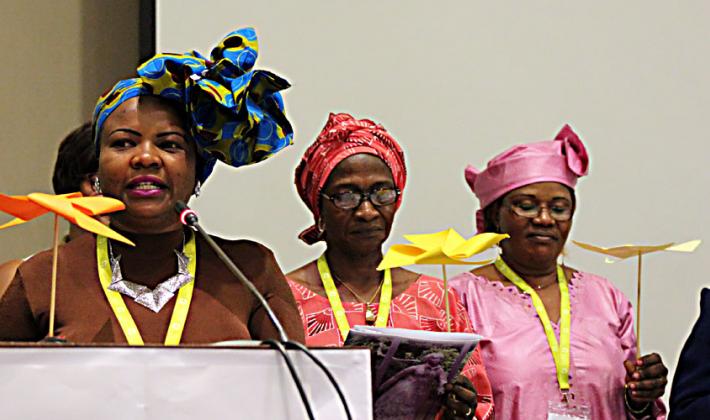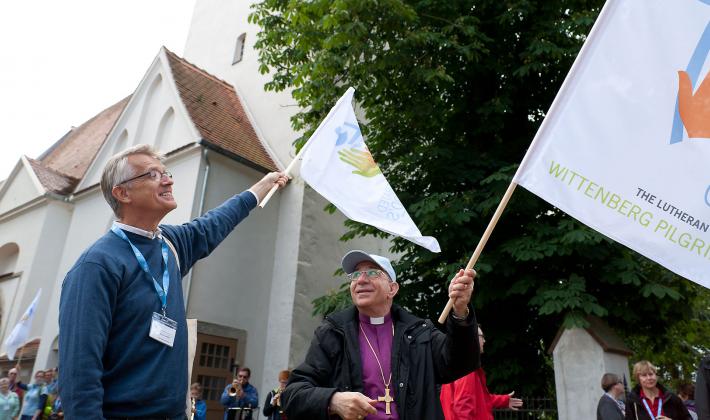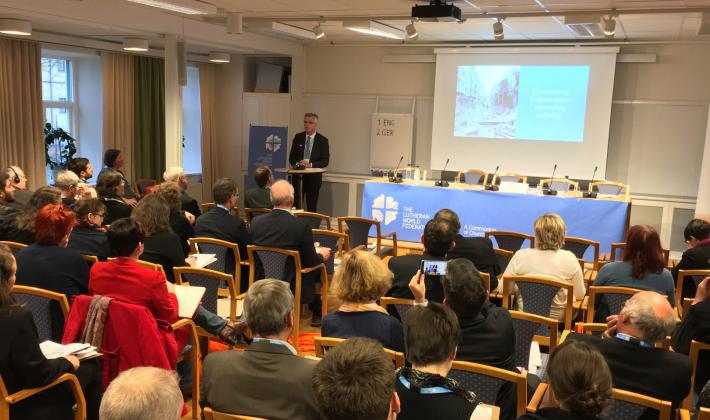“There is a resurgence of interest in religion“, Marina Dölker, a Mercator fellow working for the Lutheran World Federation (LWF) says. The cooperation with faith-based organizations in humanitarian aid and development „has really been pushed during the last years“, she says, pointing out that it became clear that working only in the secular sphere has become illusive. “The perspective has changed completely.“
A workshop “From Christian Values to Christian Engagement: The Contribution of Christian Development Work and Humanitarian Aid“ discussed the tendency of secular actors to link up with faith based organisations (FBOs) at the Twelfth Assembly of the Lutheran World Federation (LWF) on May 15th 2017.
Religious literacy
Religiously framed violence in the past years had shown the destructive role of religion, Dölker said. But on the other hand the potential of religion to pave the way for a peaceful life was also seen. Dölker said, that 30 to 70 percent of health services in the humanitarian sector would be provided by FBOs.
“Donors strive to partner more strongly with FBOs because they would see the religious literacy, a broad social network, the ability to mobilize people globally and the direct link to local communities as their special strengths”, Dölker said. Another advantage is their credibility with local communities and political leaders, which surpasses that of external actors, Dölker said.
The danger in the new new popularity of religious organizations, however, is their potential instrumentalization as an add-on for secular organizations. Religious organisations must be an integral part of the humanitarian sector, Dölker said: “I prefer to talk about religion in development not about religion and development“, she said.
Spiritual needs and equality
Rev Dr Kenneth Mtata, General Secretary of the Zimbabwe Council of Churches, explained the Christian values which form the basis of Christian engagement. “There has not been done enough on African anthropology and its influence on theology”, he said. “That would have been a big influence for example on the relation of men and women”, he added.
Quoting the bible, he said that all human beings are created by God and therefore equal. From this point of view humanity is the basis of engagement. “Therefore everyone requires development in a broader sense“, he said. “Development is not only necessary for the economically deprived, but also in rich countries, because they are causing destructive processes“. In the northern countries he sees a technically advanced society which is very disconnected when it comes to relationships“.
For churches, relationships are an integral part of their work, Cordelia Vitiello, Vice President of the Evangelical Lutheran Church in Italy, highlighted in her presentation. “For me the church is a place for the people and for relationships“, she said. Her church has not only many diaconal projects but also runs a hospital. “A part of my project there is to meet the spiritual needs of the patients“.
Sustainable development
Large church based agencies such as DanChurchAid from Denmark see the need for „churches and related agencies to get involved in the Agenda 2030 to implement the “Sustainable Development Goals“ agreed upon by the international community. “Religion shapes conviction and behaviour, mobilisation and resilience“, Jørgen Thomsen, advisor at DanChurchAid, said.
If religious organisations are not included, change is not sustainable, Thomsen argued: Secular aid organizations leave when the immediate emergency has passed. For issues like gender justice, working with local churches, congregations and through key authorities in the community are first steps for lasting change.
LWF/Rainer Lang



